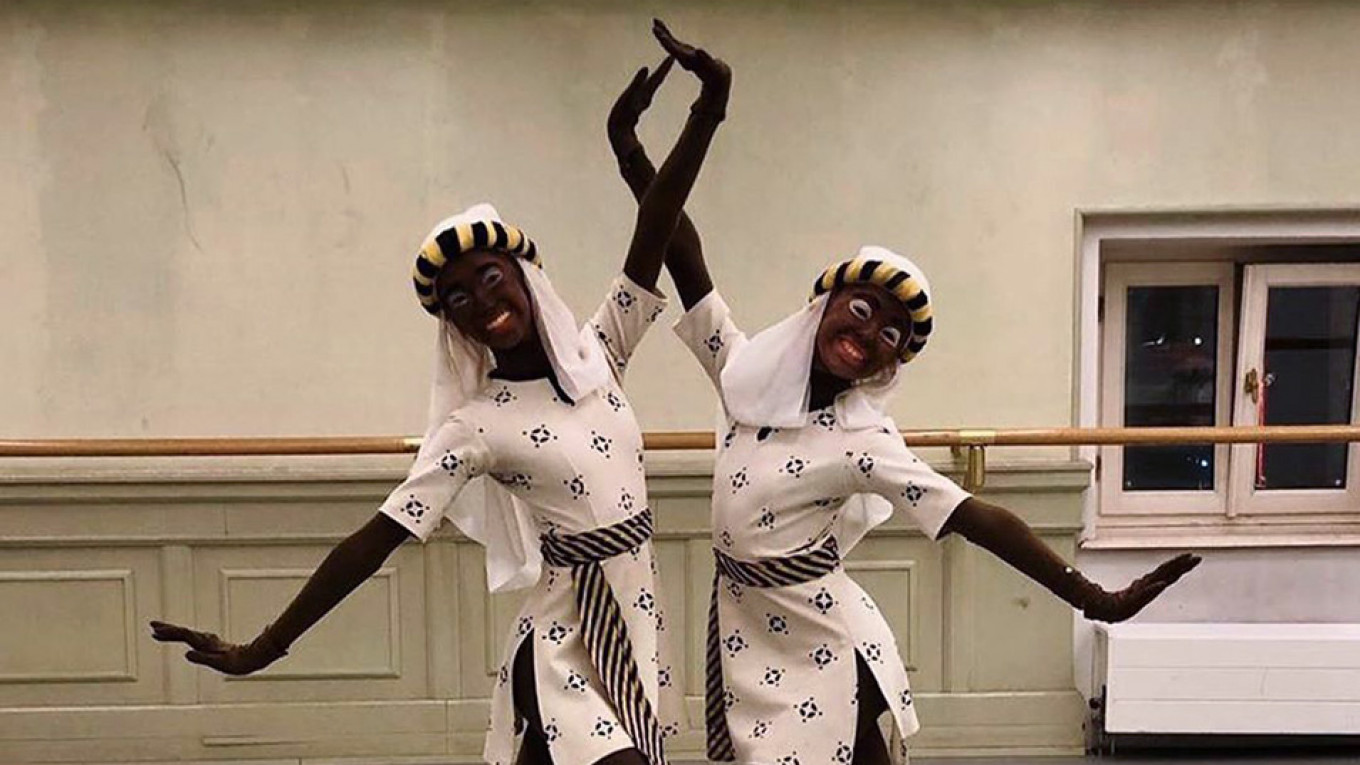
Prominent African-American ballet dancer Misty Copeland’s criticism of the Bolshoi Theater in Moscow for its use of blackface has prompted a heated online debate and a strong rebuke from the world of Russian ballet.
Copeland, who in 2015 became the American Ballet Theater’s first black female principal ballerina, highlighted “the reality of the ballet world” in a Dec. 8 Instagram post which showed two young Bolshoi dancers in blackface.
The theater said it plans to continue staging “La Bayadère,” a tragic love story set in India which premiered in St. Petersburg in 1877, despite Copeland’s criticism.
“‘La Bayadère’ has been performed in this way thousands of times in Russia and abroad and the Bolshoi Theater will not engage in such a discussion,” Bolshoi director Vladimir Urin was quoted as saying Sunday.
The head of the Bolshoi’s dance troupe Makhar Baziyev called Copeland’s criticism “simply ridiculous.”
“No one has ever complained to us or saw in these small Moors an act of disrespect,” the U.S.-funded Radio Free Europe/Radio Liberty news website quoted Baziyev as saying to the pro-Kremlin Izvestia newspaper.
Others criticized Copeland for exposing the young dancers to online abuse. The six teenage dancers whose Instagram handles were shown in Copeland’s viral post have reportedly deleted their accounts.
“I get that this is a VERY sensitive subject in the ballet world. But until we can call people out and make people uncomfortable, change can’t happen,” Copeland tweeted last Thursday.
Copeland’s post prompted another black dancer to share her “bizarre” experience as a young extra forced to don blackface in St. Petersburg’s Mariinsky Theater production of “La Bayadère” in Los Angeles in 2003.
“The experience was jarring, but I compartmentalized it,” Dana Nichols wrote in an op-ed for Dance Magazine last Thursday.
Russian-educated American ballet dancer and choreographer Eric Conrad defended “Le Bayadère” as a “tribute” to Indian culture on his YouTube channel Saturday. Conrad acknowledged Copeland’s criticism but noted that, unlike the United States, Russia does not have a history of enslaving African people that would make blackface a sensitive issue in the country.
Copeland doubled down on her stance against blackface, writing: “There’s no way on earth, with the access we have to the media, social media, educating and exposing ourselves to the world, that they would be blind and ignorant enough to not know that this isn’t acceptable.”
“I’m tired of giving the oppressors the benefit of the doubt. They need to be exposed, called out, educated and more,” Copeland said in a Dec. 8 Instagram post.
“As hard as this truth is, it’s my truth and they need to own it.”

Leave a Reply